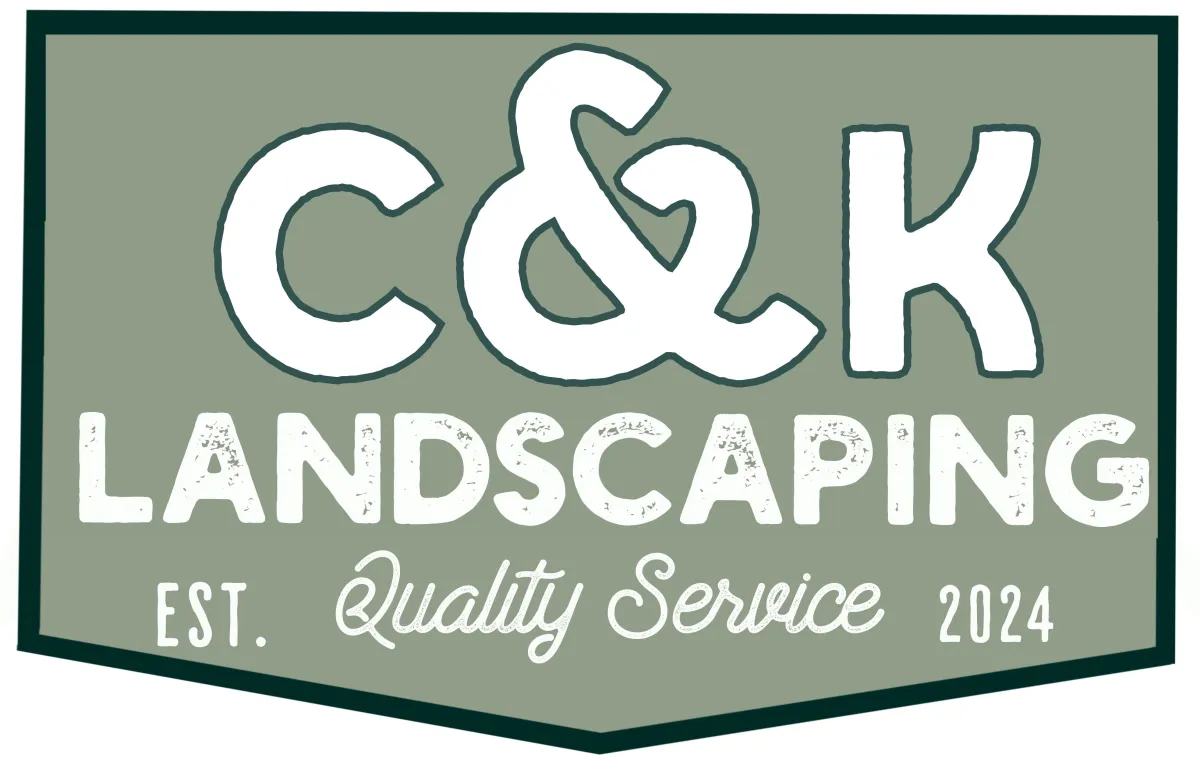Groundwork with C&K
Laying the foundation for better landscapes—expert advice, local insights, and outdoor inspiration.
Expert Tips for Thriving Utah Landscapes
Welcome to Groundwork with C&K, your go-to resource for expert landscaping insights, sustainable design ideas, and smart outdoor solutions tailored for Utah living. Whether you're dreaming of a drought-tolerant garden, planning a full-yard transformation, or just want to make your landscape easier to maintain, we’re here to help you lay the foundation for a yard that’s as functional as it is beautiful.

What Certifications Should a Professional Landscaper Have?
A Homeowner’s Guide to Choosing the Right Landscaping Expert
When you hire a professional landscaper, you're not just paying for mowing, planting, or laying sod. You’re investing in your home’s appearance, value, and long-term health of your outdoor space. So how do you know if a landscaper is truly qualified?
Certifications are one of the most important indicators of professionalism, experience, and industry knowledge. They prove that your landscaper has taken the time to study, test, and demonstrate their understanding of landscaping best practices—and that they take their work seriously.
In this article, we’ll break down everything you need to know about landscaper certifications, especially if you live in Utah or a similar arid climate. Whether you're planning a small backyard upgrade or a full-scale landscape transformation, this guide will help you make an informed hiring decision.
Why Landscaping Certifications Matter
Landscaping certifications do more than add letters after a name—they:
📌 Verify a landscaper’s training and skills
📌 Indicate specialized knowledge in areas like irrigation, hardscaping, or tree care
📌 Demonstrate a commitment to safety and environmental responsibility
📌 Ensure compliance with state or regional regulations (especially when handling pesticides or large installations)
Choosing a certified landscaper means fewer surprises, stronger results, and a smoother process.

Key Certifications to Look For
1. 🏅 Landscape Industry Certified (LIC)
Offered by: National Association of Landscape Professionals (NALP)
This nationally recognized credential covers several categories:
Exterior Technician
Lawn Care Technician
Irrigation Technician
Business Manager
The LIC designation is a sign of broad industry competence. Landscapers must pass written and hands-on tests covering safety, plant health, tools, equipment, and best practices. If your project involves multiple areas (planting, irrigation, maintenance), this is a great all-around certification to look for.
2. 🖼️ Certified Landscape Designer (CLD)
Offered by: Association of Professional Landscape Designers (APLD)
This certification is tailored for professionals who specialize in landscape design. It emphasizes principles like:
Creative outdoor planning
Sustainability
Horticultural knowledge
Client collaboration
If your project includes garden layouts, patio concepts, or visual renderings, a CLD ensures the designer has training in both aesthetics and functionality.
🖼️ Image suggestion: A landscape designer sketching or using software to map out a backyard layout
📍 Placement: Just below this section
3. 🌳 ISA Certified Arborist
Offered by: International Society of Arboriculture (ISA)
Trees require specific care. An ISA Certified Arborist is trained in:
Tree biology and pruning
Pest management
Root health and soil care
Tree preservation near construction zones
If your property includes large trees or you’re planting new ones, having a certified arborist on the team ensures your investment is protected.
4. 🧱 ICPI Certification – Interlocking Concrete Paver Installer
Offered by: Interlocking Concrete Pavement Institute
If your landscaping project includes:
Paver patios
Walkways
Driveways
Pool decks
…then ICPI certification ensures that your installer understands proper base compaction, drainage, edge restraints, and joint stabilization. This prevents settling, cracking, or weed growth later.
📸 Image suggestion: Before-and-after photo of a backyard with paver patio installation
📍 Placement: Within this section or at the end of it
5. 🧱 NCMA Retaining Wall Installer Certification
Offered by: National Concrete Masonry Association (NCMA)
Retaining walls are more than decorative—they manage slope, erosion, and load-bearing pressure. This certification trains installers in the engineering principles behind retaining wall design and construction.
In Utah’s terrain, this is especially valuable for hillside or multi-level yards.
6. 💧 Certified Irrigation Technician (CIT)
Offered by: Irrigation Association
Water conservation is critical in Southern Utah and other arid regions. CIT professionals are trained in:
Efficient system installation
Pressure regulation
Sprinkler calibration
Water-saving techniques
This credential ensures your irrigation system is eco-friendly and effective, which can lead to significant savings over time.
🖼️ Image suggestion: Close-up of irrigation system being installed or maintained
📍 Placement: End of this section
7. 🧪 Pesticide Applicator License
Issued by: State Department of Agriculture
(In Utah: Utah Department of Agriculture and Food)
By law, any landscaping professional applying herbicides, fungicides, or insecticides must be licensed. This ensures they understand:
Safe handling and mixing
Proper application methods
Environmental protection
Record-keeping and legal compliance
Make sure your landscaper has a current, valid license in the turf and ornamental category for residential services.
8. 🛠️ OSHA Safety Certification
Offered by: U.S. Occupational Safety and Health Administration
Landscaping can involve heavy equipment, sharp tools, and electrical components. An OSHA 10- or 30-hour certification means your landscaper is trained in:
Jobsite safety
Hazard communication
Proper lifting and equipment use
Fall protection
This keeps both the crew and your property safer during the project.

State & Local Certifications in Utah
If you're located in Utah, there are additional requirements and licenses you should be aware of:
✅ Contractor’s License
Required for projects that exceed certain cost thresholds (currently $3,000). Your landscaper must have a:
S330 license (Landscaping Contractor)
Registered with the Utah Division of Occupational and Professional Licensing (DOPL)
✅ Business Registration
Landscapers must be registered with the Utah Division of Corporations and Commercial Code.
✅ General Liability Insurance
Always ask to see proof of insurance to protect against accidents or property damage.
📍 Pro Tip: Visit dopl.utah.gov to verify a contractor's Utah license status.
🖼️ Image suggestion: Screenshot-style image showing how to check licenses on the DOPL website
📍 Placement: Right after this section
Bonus: Advanced & Sustainable Certifications
For homeowners who prioritize sustainability, water-saving, and eco-conscious landscaping, here are a few more optional credentials to look for:
♻️ LEED Accreditation (Landscape-Specific)
Offered by: U.S. Green Building Council
Relevant for sustainable building and landscape design.
💧 EPA WaterSense Partner
Indicates a contractor who installs WaterSense-labeled irrigation systems and fixtures.
🌱 Sustainable Landscape Certification
Covers organic maintenance practices, native plant knowledge, and habitat preservation.
These advanced credentials can give your property an edge in water efficiency, environmental impact, and modern design.
What If My Landscaper Isn’t Certified?
While certifications aren’t always required, they give you peace of mind and demonstrate a landscaper’s commitment to quality. If a landscaper doesn’t have any certifications:
Ask about relevant experience
Request before-and-after photos
Check reviews and references
Confirm they meet state/local license requirements
Ultimately, experience + certifications = the ideal combination.
Questions to Ask Before Hiring a Landscaper
Do you hold any industry certifications or licenses?
Can I see proof of insurance?
Do you have experience with projects like mine?
Will you be subcontracting any parts of the job?
How do you ensure irrigation is water-efficient?
What warranties or guarantees do you offer?
🖼️ Image suggestion: Infographic showing these 6 questions
📍 Placement: End of blog post

Conclusion: Hire With Confidence
Your outdoor space deserves as much professional care as your home’s interior. Whether you’re installing a paver patio, reviving a dead lawn, or building a backyard oasis, choosing a certified professional landscaper can make all the difference.
Certifications validate knowledge. Experience brings it to life. Together, they grow amazing landscapes. 🌿
📸 Suggested Image Summary for the Article
Image Description Suggested Placement Alt Text Landscape designer showing plans to homeowner Under “Certified Landscape Designer” A landscape designer discussing blueprints with clients Before-and-after backyard transformation Under ICPI section A dramatic transformation from patchy yard to patio oasis Seasonal landscaping guide for Utah Sidebar or footer Infographic showing Utah landscaping by season Irrigation system being installed Under CIT section Technician adjusting underground sprinkler system DOPL license lookup example Under Utah state section Screenshot showing how to verify Utah landscaping license Infographic of 6 questions to ask landscapers End of blog post Illustrated list of questions homeowners should ask
